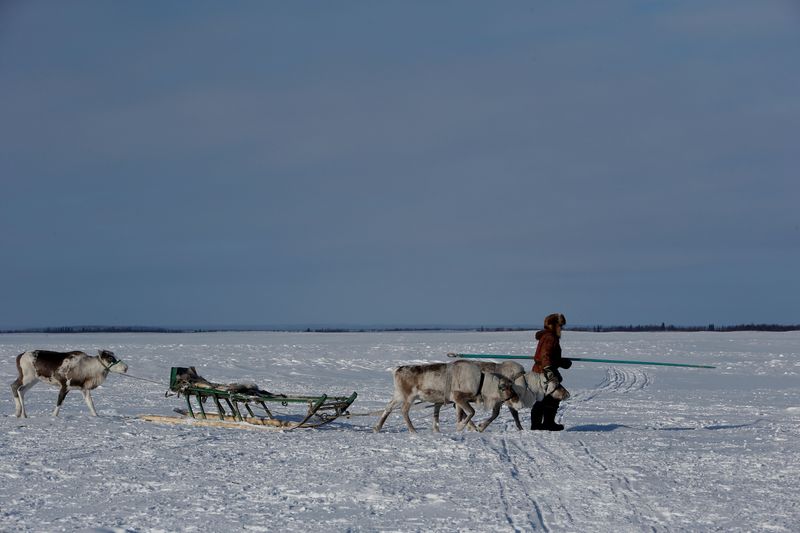By Polina Ivanova
MOSCOW (Reuters) - Only one of Russia's 85 regions, a sparsely-populated patch of the Arctic known for reindeer herders, defied the Kremlin and voted against changes granting President Vladimir Putin the right to stay in power until 2036, results on Thursday showed.
The former KGB officer, who has ruled Russia for more than two decades as president or prime minister, handily won the right to run for two more six-year terms after the current one ends in 2024.
But in the remote Nenets Autonomous District, located 1,600 km (994 miles) northeast of Moscow, over 55% of 37,490 voters voted against the reforms, the only region to say "nyet".
Discontent there has been brewing for some time and its rejection appeared to be a protest vote designed to signal anger over a local issue.
Specifically, residents object to a plan put forward earlier this year by authorities to merge with neighbouring region Arkhangelsk, a move they believe would leave them poorer by stripping them of special financial support.
A memorandum outlining the plan was signed by the two regions' governors on May 13. A September referendum on the issue has since been cancelled but locals remain wary.
"SIGN OF PROTEST"
"People voted (against the constitutional reforms) as a sign of protest ... They wanted to use this to get the attention of authorities in Moscow and to tell them that we live here too, that we have an opinion," Tatyana Antipina, a local businesswoman, said by telephone.
Antipina travelled to Moscow this week to deliver a petition to the Kremlin with over 15,000 signatures opposing the plan.
Olga Bondareva, who voted no, said locals had been protesting the planned merger since May.
"We held flash mobs every day, stood in solitary pickets, and on Saturdays we'd do protests driving in our cars, all so that our district authorities and deputies would hear us," Bondareva said in a chat over social media.
In Volonga, a village with 32 registered resident voters, located on the coast of the Arctic Ocean, 17 people took part in the referendum and all voted "no".

Kremlin spokesman Dmitry Peskov said the region's voters had the right to vote against but were "the absolute minority."